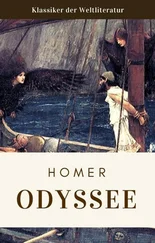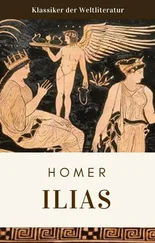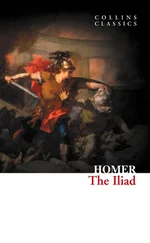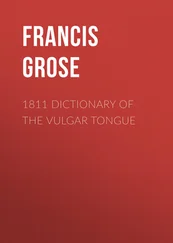Francis Grose - A Burlesque Translation of Homer
Здесь есть возможность читать онлайн «Francis Grose - A Burlesque Translation of Homer» — ознакомительный отрывок электронной книги совершенно бесплатно, а после прочтения отрывка купить полную версию. В некоторых случаях можно слушать аудио, скачать через торрент в формате fb2 и присутствует краткое содержание. Жанр: foreign_antique, foreign_prose, на английском языке. Описание произведения, (предисловие) а так же отзывы посетителей доступны на портале библиотеки ЛибКат.
- Название:A Burlesque Translation of Homer
- Автор:
- Жанр:
- Год:неизвестен
- ISBN:нет данных
- Рейтинг книги:5 / 5. Голосов: 1
-
Избранное:Добавить в избранное
- Отзывы:
-
Ваша оценка:
- 100
- 1
- 2
- 3
- 4
- 5
A Burlesque Translation of Homer: краткое содержание, описание и аннотация
Предлагаем к чтению аннотацию, описание, краткое содержание или предисловие (зависит от того, что написал сам автор книги «A Burlesque Translation of Homer»). Если вы не нашли необходимую информацию о книге — напишите в комментариях, мы постараемся отыскать её.
A Burlesque Translation of Homer — читать онлайн ознакомительный отрывок
Ниже представлен текст книги, разбитый по страницам. Система сохранения места последней прочитанной страницы, позволяет с удобством читать онлайн бесплатно книгу «A Burlesque Translation of Homer», без необходимости каждый раз заново искать на чём Вы остановились. Поставьте закладку, и сможете в любой момент перейти на страницу, на которой закончили чтение.
Интервал:
Закладка:
O mighty Jupiter! that shrouds
Thy dwelling-house with coal-black clouds
Of thy own weaving, great protector,
Grant I may swinge this sad dog, Hector,
Without the help, if so thy will is,
Of that same bullying scrub Achilles.
But Jove, I verily believe,
Just then was laughing in his sleeve;
Nor would he let the foolish elf
Kill one much better than himself:
But though he kick'd the canting pray'r
A thousand fathom in the air,
Yet did he not refuse the treat,
But snuff'd the smoke, and lick'd the meat.
And now, to show they scorn all thieving,
They serve Jove first, then take his leaving;
Upon his altar burnt a piece,
And up his nose sent smoke and grease:
The god they were resolv'd to please,
Or smoke him till they made him sneeze:
For he would think them very hollow
To keep him sharper than Apollo;
Therefore, Burn more and more, they cry'd,
Until he owns he's satisfy'd.
When all had stuff'd their bellies full,
And ate the very hoofs o' th' bull,
Old chatt'ring Nestor 'gan to talk,
And thus to Agamemnon spoke:
Bid the blind fiddlers scrape away,
And all the troops shall march to-day;
And, that no useful man be mist,
Let muster-master bring his list
And call 'em o'er: if then we're right,
Do you lead on, by Jove we'll fight.
At the chief constable's commands
They muster'd all their trusty bands;
Each knew his right and left hand man,
And eke his officer could scan.
As Nestor said, each hang-dog went
To his own ragged regiment.
Minerva too was got among 'em,
Though she of right did not belong 'em;
Her brawny arm a potlid shak'd,
As bright as blacking-balls could make't,
On which there hung an ugly head,
So grim, 'twould strike the train-bands dead:
With this, and other little helps,
She cheers the poor faint-hearted whelps.
For wives they now no longer sob,
But swear to die or do the job.
As when a bonfire, with a noise,
Is kindled by the parish-boys,
It catches first the straw, then rushes.
And seizes on the dry furze-bushes,
Which causes such a dev'lish glaring,
That half the fools i' th' town stand staring:
Just so you spy'd reflected streaks
From greasy doublets of the Greeks;
For noise, you'd swear these sons of Greece
Were nought but flocks of Solan geese,
Who gabble rarely in their flight,
But ten times louder when they 'light:
Thus in a noisy crowd they wander,
Before they reach the fam'd Scamander;
And as they hasten to the shore,
They make the very welkin roar.
Thick as the crowds that walk the Strand,
Upon the river's bank they stand;
Or thick as leaves that yearly fall,
By pecks and bushels in the Mall;
Or swarms of flies, that find a crop
Of sugar in a grocer's shop;
So throng'd the varlets stand, and vow
They'll beat the Trojans black and blue.
About each trusty serjeant goes,
And sets them all in proper rows,
As easily as Rachael Sparrow
Places the apples in her barrow,
Where (though at first no form they keep)
She quickly makes a curious heap.
Above the rest the king appears,
And tops 'em all by th' head and ears:
He look'd, amidst this set of warriors,
Like a great hound amongst the tarriers.
For breadth of chest, as well as back,
He beat the mighty bruiser, Slack;
But in his strut and martial air
He seem'd a first-rate grenadier.
This day Jove order'd he should pass
To view, much bigger than he was:
And as he knew the head o' th' cull
With brains was not a quarter full,
He clapp'd a candle in his skull,
Which shining briskly through his eyes,
Fill'd all the Grecians with surprise;
For Jove, you need not fear, took care,
At proper times, to make folks stare.
As for these various ragged packs
Of rogues, from different wapentakes,
Their Christian names I've many times
Labour'd to jumble into rhymes;
But could not do it for my soul,
So leave them to the muster-roll.
If any critic choose to pop
His head into my printer's shop,
He'll find a copy there, not spurious,
Left for th' inspection of the curious.
THE THIRD BOOK OF HOMER'S ILIAD
ARGUMENT
Now all the troops in order plac'd,
Against their minds, each other fac'd;
When nimble Paris, by a fit
Of courage, or of phrensy, bit,
Fierce sallies forth upon the plain;
The cuckold drives him back again:
Yet hearten'd afterwards by Hector,
Who read him a confounded lecture,
This dancing, cuckold-making knight
Challeng'd the cuckold out to fight;
Which Menelaus answer'd soon,
And in the scuffle knock'd him down.
Fast by the crown the Spartan held him,
And swore most bloodily he'd geld him:
But Venus, queen of love and beauty,
Who thinks all whoring tricks a duty,
In a great hurry came and caught him
Fast by the luggs, and fairly brought him
To his own room; then from the closet
She fetch'd a smoking-hot sack posset.
Soon as she found it warm'd his belly,
She stepp'd to th' door, and call'd up Nelly;
Who scolded hard at first, but soon
Pull'd off her clothes, and laid her down
Upon the bed beside her swain,
Who trimm'd her buff with might and main.
How oft, at exercise so vi'lent,
They cry'd Encore, our author's silent.
HOMER'S ILIAD
Thus muster'd by their leaders' care,
Both sides for fisty-cuffs prepare.
The Trojans toss their caps and shout,
And noise proclaims 'em bloody stout;
Like cranes that fly in winter time
(As poets tell us) to a clime
Where pigmies dwell, with whom they fight
To th' ears in blood from morn to night.
But the bold Grecians on their toes
Steal softly to surprise their foes,
Taking huge steps along the green
To get a blow before they're seen,
Knowing, a sorry rogue may crack
A brave man's crown behind his back.
With nimble feet, in sweat well soak'd,
They trudge it, though with dust half chok'd.
Thus, when a mist on mountain head
As thick as mustard round is spread,
The puzzled shepherd cannot keep
The goats from mingling with the sheep:
So of the Greeks, not one, I trow,
Ask him but hastily, could know
Whether his nose was on or no.
Now front to front they ready stand
To fight, and only wait command;
When nimble Paris to the van,
Dress'd à la mode de François, ran:
With coney-skins he edg'd his coat,
To show he was a man of note:
A cross-bow o'er his back was slung;
And on his thigh his poniard hung.
A staff he pois'd would fell an ox,
And dar'd the boldest Greek to box.
As thus he struts, and makes a splutter,
Like crow i' th' middle of a gutter,
Him Menelaus soon espies,
And joyful to himself he cries:
Blast my old shoes, but very soon
I'll have a knock at your rogue's crown!
Then darted, in a bloody rage,
From his old duns cart to engage:
And as he hied along to meet him,
He look'd as if he meant to eat him.
So joys the bailiff, when he spies
A half-pay officer his prize:
Headlong he drives across the way,
Regardless both of cart and dray,
Nor stops till he has seiz'd his prey.
Soon as the youth the cuckold saw,
As guilt will ever feel an awe,
In spite of all that he could say,
He found his legs would run away:
Then, since the matter turn'd out so,
'Twas best, he thought, to let 'em go;
So turn'd about, and in a crack
They brought their master safely back;
And, as he puff'd along, we find him
Not daring once to look behind him.
As when a bumpkin sees a snake
Come slyly stealing from the brake,
He starts, and looks confounded cunning,
But quickly saves himself by running:
So this young beau the cuckold shuns,
And 'mongst his trusty Trojans runs.
This the bold Hector could not bear;
He thought he ran away for fear —
Without considering, now and then
The very best and boldest men
Cannot their members so command
To make 'em at all seasons stand.
Be that as't may; with accent grave
He thus began to scold the knave:
Интервал:
Закладка:
Похожие книги на «A Burlesque Translation of Homer»
Представляем Вашему вниманию похожие книги на «A Burlesque Translation of Homer» списком для выбора. Мы отобрали схожую по названию и смыслу литературу в надежде предоставить читателям больше вариантов отыскать новые, интересные, ещё непрочитанные произведения.
Обсуждение, отзывы о книге «A Burlesque Translation of Homer» и просто собственные мнения читателей. Оставьте ваши комментарии, напишите, что Вы думаете о произведении, его смысле или главных героях. Укажите что конкретно понравилось, а что нет, и почему Вы так считаете.












